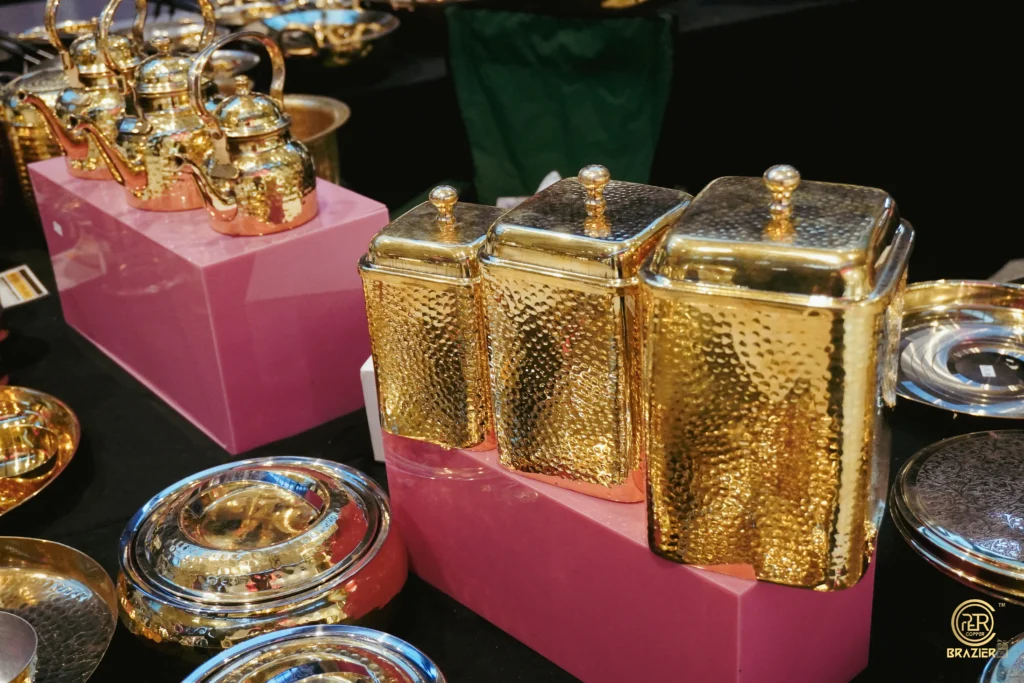Effortless Cleaning Tips for Brass, Copper, and Kansa Utensils
Brass, copper, and kansa utensils have always held a special place in traditional kitchens. From ancient Ayurvedic practices to modern wellness lifestyles, these timeless metals have been trusted for their health benefits, beauty, and cultural value. Their rich tones and graceful designs elevate everyday dining and cooking into an experience — one that blends functionality with tradition. However, regular use and exposure to air, moisture, and certain foods can cause these metals to lose their natural shine over time. Let’s Understand the Metals, Brass is an alloy of copper and zinc, while kansa is a combination of copper and tin. Copper, being a pure metal, is highly reactive and prone to oxidation. All three metals develop a patina over time—a dull, darkened layer that forms due to exposure to air, water, and acids in food. While some may find this patina adds character, others prefer the shine and brilliance that these utensils originally possess. The good news is, both preferences are valid — and the cleaning methods below can help you achieve whichever look you love, naturally. Thankfully, you don’t need harsh chemicals or expensive polishes to bring them back to life. With a few simple ingredients that are likely already in your kitchen, you can maintain the glow of your traditional metal utensils. Cleaning Methods for Brass, Copper, and Kansa Utensils 1. Use Lemon and Salt for Instant Shine One of the simplest and most effective ways to clean brass and copper utensils is by using lemon and salt. Cut a fresh lemon in half, sprinkle some coarse salt over the cut side, and rub it directly onto the surface of the utensil. The citric acid in the lemon reacts with the tarnish, while the salt acts as a gentle abrasive to scrub off any stubborn stains. As you rub, you’ll see the dark patches lifting and the metal beginning to shine through. Once the entire surface has been cleaned, rinse the utensil with warm water and dry it thoroughly with a soft cloth. This method works especially well for utensils with light to moderate tarnish and is ideal for quick, on-the-spot cleaning. 2. Try Tamarind or Tomato Pulp for Natural Acidity Tamarind pulp and ripe tomato paste are both naturally acidic and work wonderfully as natural metal cleaners. For this method, take a small amount of tamarind paste or fresh tomato pulp and rub it generously over the surface of your brass or copper item. Let it sit for 5 to 10 minutes so the natural acids can break down the oxidation. Gently scrub with a soft brush or cloth and rinse thoroughly. These ingredients not only clean the metal but also restore a warm, golden glow to the utensil. This is a particularly useful tip for those who prefer using kitchen ingredients over chemical-based solutions. 3. Make a Baking Soda and Vinegar Paste for Deep Cleaning For utensils that have built-up tarnish or stains that won’t come off easily, a paste made from baking soda and vinegar can work wonders. Mix a few tablespoons of baking soda with enough white vinegar to form a thick paste. Apply this paste generously over the entire surface of the utensil, let it sit for 10–15 minutes, then scrub gently using a soft sponge or cloth. The fizzing reaction between the baking soda and vinegar helps lift off the grime and restore the metal’s natural shine. Rinse thoroughly with water and wipe dry. Avoid using this method too frequently on delicate or thinly-lined utensils, as repeated exposure to acidic components can wear down any tin lining. 4. Use a Flour, Salt, and Vinegar Polish for a Soft Finish This is a classic polishing remedy that’s perfect for restoring the gentle shine of copper and brass utensils. Mix equal parts of flour, salt, and vinegar to form a smooth paste. Apply it evenly across the surface of the utensil and let it sit for 30 minutes to an hour. The mixture works slowly but gently, lifting away grime without being too abrasive. After letting it rest, rinse off the paste with warm water and buff the utensil dry with a clean cotton cloth. This method is especially useful for antique utensils or items with intricate designs that you want to clean gently without damaging details. 5. Clean Kansa Utensils with Mild Soap and Warm Water Kansa utensils are generally less reactive and easier to maintain than brass or copper. For daily cleaning, simply use mild, chemical-free dish soap and warm water. Wash with a soft sponge or cloth, avoiding abrasive scrubbers that might scratch the surface. Unlike copper or brass, kansa doesn’t usually require acidic cleaning agents unless it’s heavily tarnished. Make sure to rinse thoroughly and dry immediately to avoid watermarks. If you notice kansa darkening over time, that’s completely natural and does not affect the utensil’s quality or safety. Occasional polishing with tamarind or ash can help maintain its look if desired. 6. Ash or Multani Mitti (Fuller’s Earth) for Traditional Cleaning For those who love sustainable and Ayurvedic home care, using ash or multani mitti to clean metal utensils is a time-honored practice. To use ash, take a small amount and mix it with water to form a slightly grainy paste. Rub this paste onto the utensil using your hand or a soft cloth. It effectively removes dirt and adds a matte, earthy shine. Similarly, multani mitti can be mixed with water to make a paste and applied to kansa, brass, or copper surfaces. Let it dry, scrub gently, then rinse and pat dry. This method is especially good for those who prefer to avoid acidic ingredients entirely. Common Mistakes to Avoid While Using Brass, Copper, and Kansa Utensils 1. Always Dry Immediately After Washing No matter which metal you’re cleaning, one rule remains universal: always dry your utensils immediately after washing. Leaving them wet, even for a few minutes, can cause water spots and accelerate tarnishing. Use a clean, soft towel to thoroughly wipe down every part

